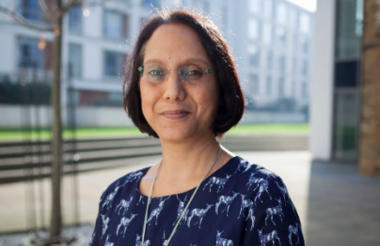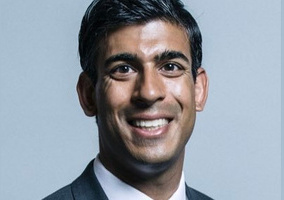The charity sector is “poorly understood” by people, and this has made it difficult to make a case for support during the coronavirus crisis, fundraisers heard yesterday.
Adeela Warley, chief executive of CharityComms, was speaking during a panel discussion at the Chartered Institute of Fundraising (IoF)’s annual convention. She said that organisations need to unite internally to make sure their communications are coherent.
The panel looked at four key issues that the fundraising sector will need to address in the next four years, asking speakers to present them as a “provocation”. Warley chose to talk about the need to “join up internally as one team with one mission”.
‘An absolute mountain to climb’
Warley said: “What can charity comms and fundraisers learn from the Covid-19 crisis? Well, I think that it's fair to say that the sector and many of our own organisations are really poorly understood, by government, by the media, by the public.
“We've just been really busy being busy. Our core purpose and our values have been committed to paper, and largely forgotten about, instead of coming through in absolutely everything that we do. This has left us vulnerable and with an absolute mountain to climb to make our case for support both today and for the future.”
She added that while this is a provocation and a generalisation, there is some truth to it, and that a solution is putting collaboration at the heart of every charity’s effort.
She said: “Organisations who have fostered cultures which value collaboration over internal competition, who have united around shared ambitions and objectives, being given the creative license to try new things, to innovate, to test and learn – these are the charities that have done well in the face of crisis.4444
“We have to be thinking holistically. We cannot continue to work in silos, because that only serves to dilute the impact of our communications. And, frankly, confuses people. We have to operate as one organisation, with audiences at the heart of everything that we do.”
Breaking down silos
The other three issues that the panel addressed were “fundraising for a green recovery”, “creating anti-racist, inclusive fundraising” and “ensuring fundraising enhances your mission”. The panellists agreed that the four of them should be implemented together.
Ben Carter, director of income at Derbyshire Wildlife Trust, who was making the case for environmentally conscious fundraising, argued that this will require collaboration both internally and with other organisations.
He said: “I think nobody's saying that the green recovery is not a priority issue. What they're saying is it has to mix in with everything else that we're trying to do. That is the key to achieving it. It's breaking down the silos.
“We talked about silos within organisations. Well, how about breaking down some of the silos across organisations? There's a power in the sector, in supporting each other's issues.”
He said that something similar has started to happen in the response to the Black Lives Matter movement, with many different charities recognising the importance of the issue.
“In the context of the green recovery, I think it's about embedding those values into everything that you're doing and recognising how critical they are.”











